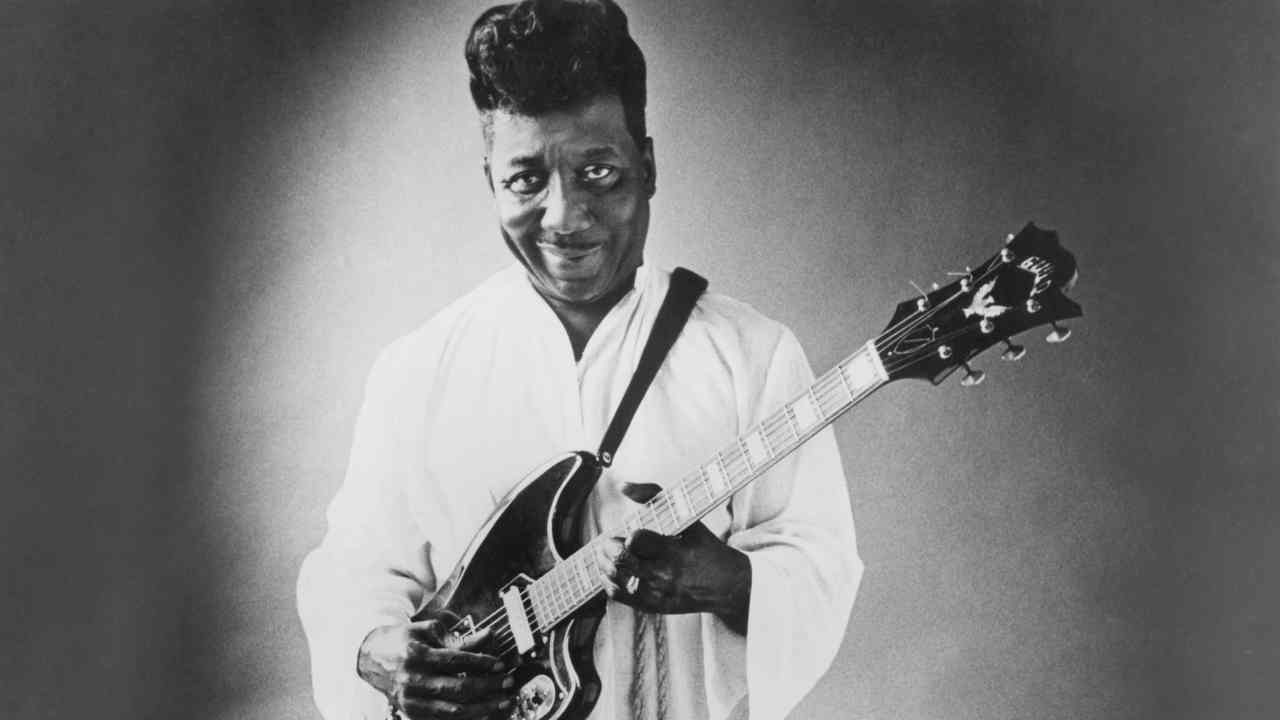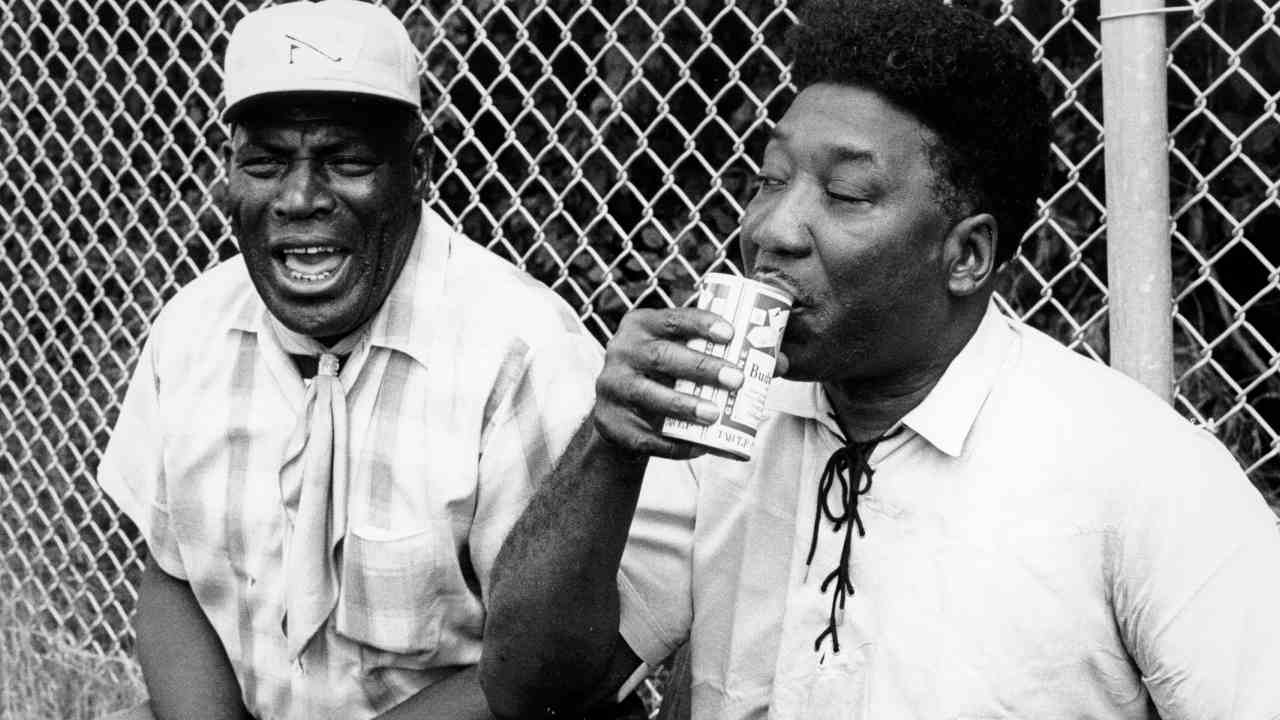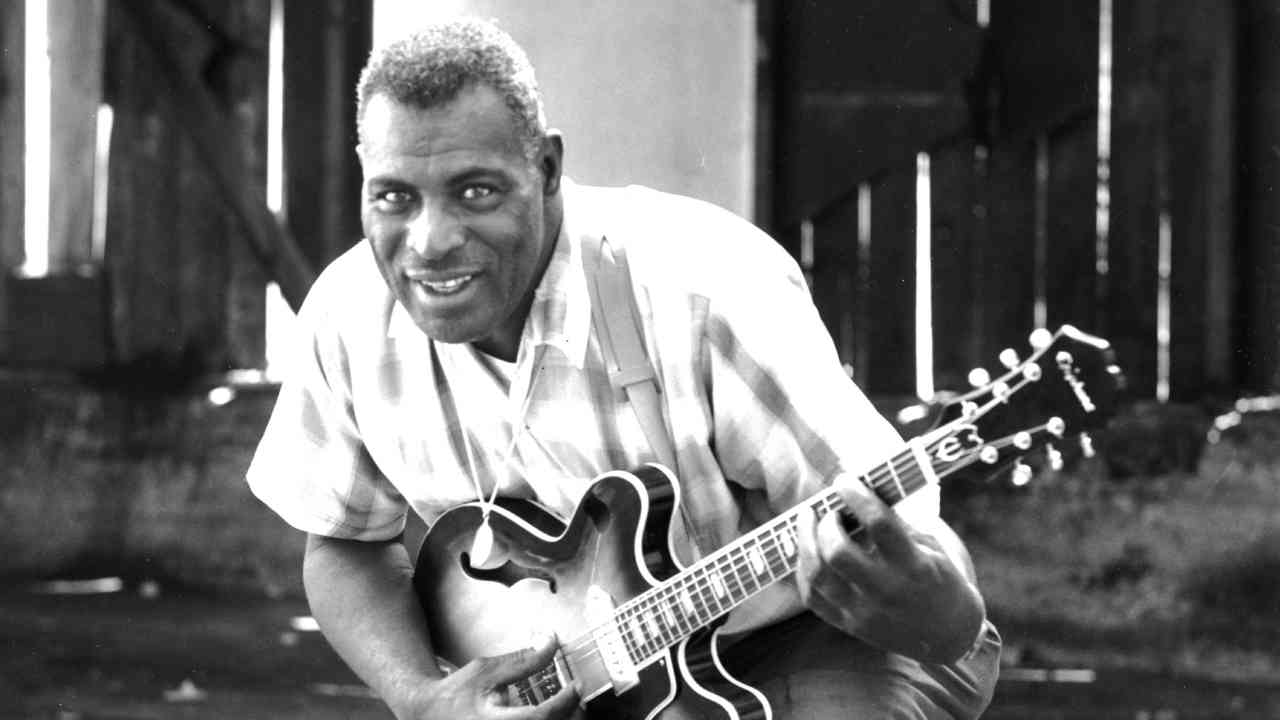
It’s May 1968 and a turbulent age, with the life-changing political events of half a century still unfolding. Riots and revolution circle this third stone from the sun as war, terrorism and civil rights angst boil over. In the US, black activist Martin Luther King has been assassinated; the nation’s democracy will take another blow when popular senator Robert F. Kennedy follows him.
In the Ter-Mar Studio at 2120 South Michigan Avenue, Chicago, a hand-picked group of hip young musicians from the interracial, avant-garde rock collective Rotary Connection are midway through a three-week recording session, running through a contorted electric groove called Tom Cat. The sound is a prowling, prickly, funk-blues shuffle with wild tenor sax and mewling acid guitar licks laced throughout. Behind glass, at the mixing desk, is the young man driving the idea forward, 26-year-old Marshall Chess, with creative arranger Charles Stepney at his side. At the centre of the ululating jam is Chess records’ fading folk hero and master of the blues, Muddy Waters. A year later, and in light of the storm that will follow these sessions, Waters will rant to the press: “Every time I go into Chess they put some un-blues players with me… and if you change my sound, then you gonna change the whole man.” But for now, Waters seems more than content, raucously throwing his lot in with the rag-tag unit that is about to tip electric blues – and its native identity – on its head.
But the story starts in the 1930s, with Marshall’s forefathers, the Jewish Cycz family arriving in Chicago from a poverty-stricken Poland on the cusp of WWII. The Windy City is a town of industry and opportunity – pretty much the Cycz’s whole village has relocated here, alongside a vast black community travelling north to the prosperous hub, all the way from the destitution of Mississippi and Memphis via the Rock Island Line.
Swiftly, the family surname is Americanised to Chess, and two young brothers Lejzor and Fizsel become Leonard and Philip. Their father sets about a scrap metal business; the integration into their new neighbourhood is complete.
It’s a happy home, with Mom and sister Malka too, and the lively brothers are often distracted by the sights and sounds of their new environment and its darker-skinned denizens, particularly the local gospel church with its stomping, hand-clapping, tambourine-and-piano theatre. Consequently Leonard and Phil often get the strap from Pop for missing dinner. But soon the time comes for boys to become men, and for men to make some bucks.

“My father was into making money,” Marshall Chess reflects today from his LA home. “He came from a poor peasant village without a toilet or electricity. He saw his first toilet when they got off the boat at Southampton, England! So the Cyczs, along with the millions of black people, came to Chicago for one reason only. To make a living, buy a house, buy a car.”
Leonard’s early endeavours included “shoe salesman, milkman, and liquor store owner in a very bad black neighbourhood where the rent was cheapest,” also working in his father’s scrap yard, in the heart of another black community. By the mid-1940s, the music bug-bitten brothers were proud owners of the Macomba Lounge club, providing a rough-and-ready outlet for black performers when few venues would accept their custom or talent.
Leonard now had a family of his own, but the brothers’ conviction for their ever-burgeoning businesses left little time for anything else. To the young Marshall, all he wanted to do was hang out with his dad.
“At the beginning, Dad worked two jobs. Then the Macomba was open all night and he would come home at five, six in the morning. He’d bring the money home from the club, and I remember he’d always wear this big chrome gun, which he’d put on top of the cabinet. I used to ask him, ‘Why do you have a gun?’ He told me, ‘Because when I take the money out I want everyone to see it.’”
Expanding the exposure of black artists they were rubbing shoulders with in this fertile setting, the brothers formed Chess Records in the early 50s, at a time when major record companies were oblivious to – or fearful of – promoting the sounds of the Deep South and black American dance music.
Initially selling records from the back of a Cadillac, and building up to a self-contained multiplex of an office, studios, record pressing plant and distribution warehouse all on South Michigan Avenue, Chess Records – and spin-offs Checker, Argo and Cadet – would put the Chicago music scene on the map as the US pop charts soon filled with the grit and groove of Muddy Waters, Howlin’ Wolf, Sonny Boy Williamson, Little Walter, Bo Diddley, Chuck Berry, Ramsey Lewis and Etta James.
As the empire grew, Leonard would take Marshall fishing in the early mornings – “I think he felt so guilty about working all the time” – and then, aged ten, Marshall got his first big road trip, down to the Deep South to look for talent, just him and his dad. “He was a workaholic and I was the oldest, the only son. The only way to be around him was to go where he went.”
Before long, Marshall was using his free time to work at the Chess office. “My first job was getting coffee for everyone. Then I started packing boxes for shipping records, sweeping, I learned all the jobs from the ground up. They treated me like a slave, you know (laughs). I would go there in the summers, I just loved hanging around. I knew all the artists, but they treated me like the little kid I was. People often asked what were they talking to me about? Well, I was 12 or 13 and they were always just asking me about sex, they were curious, ’cos the blues singers coming from the Deep South, Mississippi, Kentucky and Arkansas, they were having sex at ten years old. I liked it, you know, it wasn’t a record company, it was the family business, and the artists were my friends.”
Turn the clock to 1967. Marshall has spent his life exploring every nuance of running America’s foremost jazz and blues black music label, and the times they are a-changing. A shift in focus is needed to satisfy the record-buying public, who are veering away from Chess and into Motown, flower-power pop and blue-eyed soul and rock. Marshall affirms, “I was definitely part of that whole psychedelic generation – I grew up at the end of beatniks and the beginning of hippie. Now I wanted Chess Records to get into that white market. In 1966 I convinced my family to let me start my own label, Cadet Concept.”
The family were right by his side, and they knew they could make money too.
“My father and Uncle Phil were behind me. By then I’d produced a lot of Chess’ output, I knew my way in the studio and my father always said to me, ‘Do anything you want, don’t let people tell you, just go with what you believe or you’ll never do anything special’. Also I had the keys to the office and the studio, and in that era we weren’t recording a lot at night.”
Cadet Concept was to be a fresh take on the Chess spec: a melting pot of new rock influences with the emotion and soul of their signature sound. Marshall’s first recruits were a young arranger he’d been recommended, Charles Stepney, plus Chess vocalist Minnie Ripperton, house producer and saxophonist Gene Barge and house songwriter Sidney Barnes. Three members of rock band The Proper Strangers were poached – guitarist Bobby Simms, bassist Mitch Aliotta and drummer Ken Venegas. The final additions to the dream line-up were guitarist Phil Upchurch and drummer Morris Jennings. Rotary Connection were ready to plug in.
The band quickly started reworking Marshall’s favourite songs by artists like Cream, Dylan, the Stones and Hendrix in a soulful, celestial and symphonic way, but still with an acid-fuzz edge for the freaks.
It translated brilliantly on their self-titled debut of 1967, and Cadet Concept’s direction seemed sure to tap into the new pop consciousness seamlessly.
Marshall had assembled the best modern musician’s collective around, with the talent to reinvent well-loved standards and deliver exciting new compositions. What if that band could breathe life into the old Chess catalogue, and bring a new generation of music lovers back to the blues?

Muddy Waters – Marshall’s friend, and Chess Records’ major staple for 20 years – would be the first experiment with Rotary’s backing, on an album titled Electric Mud.
“The blues was a part of me, I’d heard it my whole life,” Marshall explains. “When I thought up Electric Mud, it wasn’t to change Muddy Waters’ sound. I approached it like it was a concept of making this kind of psychedelic blues album. It had never been done before, and that’s what my label was all about. Muddy trusted me, so I said, ‘I have this experiment, let’s do it’. It was a one-time thing, you know? Like an actor in a film.”
Muddy agreed to the idea. The studio was booked and some of the young bloods from Rotary Connection – augmented by session aces Pete Cosey and Roland Faulkener on guitar and Louis Satterfield on bass – blended with Waters and his boogie-woogie piano sideman Otis Spann. The track-listing was drawn from Muddy’s best-known back catalogue, with numbers such as Mannish Boy and I’m Your Hoochie Coochie Man alongside two new songs and a cover of the Rolling Stones’ Let’s Spend The Night Together, suggested by Marshall, as Waters fans the Stones had covered I Can’t Be Satisfied a couple of years earlier.
Marshall: “The band all got along great and Muddy gave it his go. Some things were difficult for him, just because he wasn’t used to playing with a band that he wasn’t in control of. Having Otis Spann there helped a lot as they were so used to playing together. But we were all tremendously into it and that’s why it came out great.” Marshall laughs: “Whether people liked it or not, it’s a great-sounding record.”
And when it hit record shop shelves in October 1968, the results were instantaneous.
“The album took off like a rocket ship, because by then Rotary Connection had a name, and because of the label. It sold 100,000 right away, it was the biggest Muddy Waters album to date. He was happy, we were all happy.”
But it wasn’t to stay that way. “Unfortunately about six or eight weeks later, Rolling Stone magazine – the bible of that whole movement – wrote a horrible review and called it the worst blues album ever made. The radio play stopped virtually overnight, then all these blues purists got on the bandwagon. The criticism was that it wasn’t a pure blues record – but it was never meant to be. I was hurt,” Marshall continues. “I was young, I had a really big ego, and I had my label and I had my hit. Then someone calls it the worst blues album ever made. It didn’t feel good.”
Electric Mud was popular with new fans nevertheless, but there were mixed reports as to how the blues legend truly felt about it. Marshall is positive: “He seemed to be real happy around me. We never had that conversation were he said it’s a piece of shit, although I heard he may have said that somewhere. But a year later we recorded the second psychedelic album, After The Rain, so why would he do that if he hated it so much?”
Still, the wheels were already in motion to update the imposing catalogue of Howlin’ Wolf in the same way. In November 1968, the entire crew reconvened to sprinkle a gritty treasury of Wolf and Willie Dixon originals with some acid blues magic. Coaxed by the fact that Electric Mud had sold well, Wolf knuckled down but, according to Marshall: “He sang it but he didn’t like it… It was a rough time for Wolf and he needed the money.”
There were numerous problems during recording. Marshall elaborates: “Wolf wasn’t healthy. He did the whole album sitting down. He just wasn’t into it 100 per cent either, so there were a lot of takes and a lot of overdubs. Wolf would argue at times. He didn’t walk out on it, though. But you must remember that these guys were band leaders and they wanted to be in control of their whole sound, especially Wolf.”
Wolf’s reaction to his band mates had not been as positive as Muddy’s. Guitarist Pete Cosey – the jazz freak with enormous hair and a navel-length beard in a plait – remembers Wolf gesturing to his effects pedals and gadget boards in outrage. “He said to me, ‘Why don’t you take them wah-wahs and all that other shit and go throw it in the lake on your way to the barber shop?’ He wiped me out with one stroke!” And the mastered playback didn’t go well, either. Marshall recalls, bluntly: “He didn’t like it. He said it was dogshit.”
Wolf’s low opinion was further compounded by Marshall’s cover art concept which read: ‘This is Howlin’ Wolf’s new album. He doesn’t like it. He didn’t like his electric guitar at first either.’
Wolf had happily played electric guitar for years, so smarted at the reference. “It was marketing,” says Marshall, “and in that era I had to do all of that, and press, everything. I thought I was being clever. I thought he would eventually like it and he didn’t.”
Instead, the art seemed to put the general public off from purchasing it, too. “It was a bad idea for the cover,” Marshall admits, “but it was a good lesson. Don’t put something negative on something to try and sell it.”
The people that had turned away from Electric Mud stayed away from The Howlin’ Wolf Album in similar numbers. But Marshall was still able to gather some national press support. “I was good friends with Jann Wenner who founded Rolling Stone, with Billboard, with Creem magazine… It wasn’t like, ‘We hate it and we’re not gonna do it’, but in general the reviewers didn’t like it. The blues people didn’t like playing with these guys’ classic sounds. And I can understand that to a certain degree.”
It was a hard knock, but it made the praise that the artists and that Marshall Chess himself received later for these pioneering recordings all the sweeter, with these two unique benchmarks influencing rock and pop culture to come from Captain Beefheart, Cream, Led Zep and The Faces, to the Black Keys, Dangermouse and Jay-Z.
“Electric Mud and The Howlin’ Wolf Album are still out there, with covers bands in different countries, and they eventually became a big influence on the hip-hop and new R’n’B community.
“One of the best feelings I had was 30 years later,” Marshall gushes, “when Chuck D from Public Enemy emailed me and he said, ‘I want you to know that Electric Mud was an amazing thing and it turned me and a lot of hip-hop people on to these great artists like Muddy Waters. Those records really did do their job after all.”
Originally published in Classic Rock issue 149







